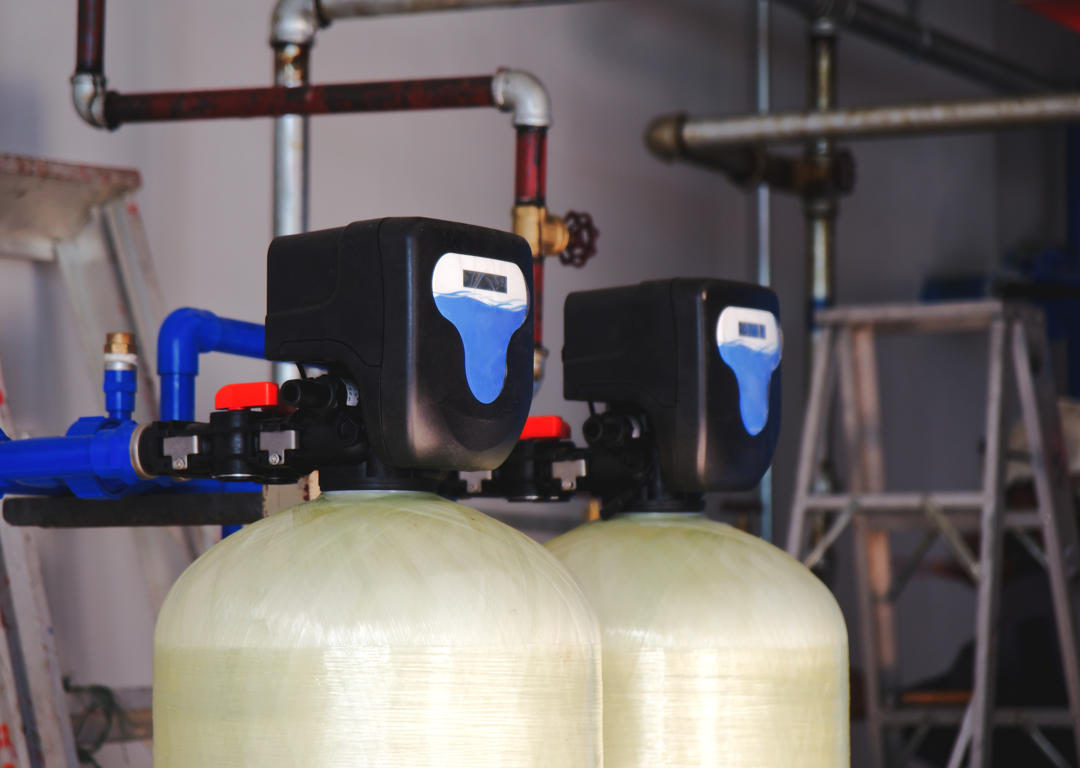
Hard water is a common problem that many homeowners face, often without realizing it. Over time, it can cause plumbing issues, appliance damage, and even skin irritation. In Boise, Idaho, where groundwater contains moderate to high levels of dissolved minerals, many households experience the negative effects of hard water. These minerals, primarily calcium and magnesium, accumulate in pipes, fixtures, and appliances, leading to inefficiencies and costly repairs.
If you’ve noticed soap scum buildup, dry skin, or reduced water pressure, your home may have hard water. Understanding the signs, impacts, and benefits of installing a water softener can help you determine the best solution for your home.
What Is Hard Water?
Hard water contains a high concentration of dissolved minerals, primarily calcium and magnesium. While not harmful to drink, excessive mineral content can lead to problems such as scale buildup in plumbing, decreased efficiency of appliances, and difficulty in cleaning.
How Water Hardness Is Measured
Water hardness is classified based on the amount of minerals present, measured in grains per gallon or parts per million.
- Soft water: 0–3.5 grains per gallon (0–60 parts per million)
- Moderately hard water: 3.5–7.0 grains per gallon (60–120 parts per million)
- Hard water: 7.0–10.5 grains per gallon (120–180 parts per million)
- Very hard water: Over 10.5 grains per gallon (180+ parts per million)
Boise’s water supply averages between 5 to 10 grains per gallon, meaning most homes have moderate to hard water. This makes a water softener a valuable addition for many homeowners.
Signs Your Home Has Hard Water
Many homeowners only recognize hard water once it starts causing noticeable problems. Here are some common signs that indicate hard water in your home.
Visible Signs Around Your Home
- White, chalky spots on dishes and glassware after washing
- Thick soap scum buildup on sinks, tubs, and shower doors
- Mineral deposits clogging faucets and showerheads
- Scale buildup in appliances like dishwashers, washing machines, and water heaters
Effects on Skin, Hair, and Laundry
- Dry, itchy skin caused by soap not rinsing off completely
- Dull, brittle hair that feels rough after washing
- Stiff, scratchy clothes that fade faster due to mineral deposits
- Towels that feel rough instead of soft after washing
Plumbing and Appliance Issues
- Decreased water pressure due to mineral buildup in pipes
- Higher energy bills as water heaters work harder to heat through scale buildup
- The shortened lifespan of appliances that rely on water, such as dishwashers and coffee makers
How Hard Water Affects Your Home
The negative effects of hard water go beyond minor inconveniences. Over time, mineral buildup can cause major plumbing and appliance issues that require costly repairs or replacements.
Impact on Plumbing
- Mineral deposits clog pipes, reducing water flow and increasing the risk of leaks
- Corrosion occurs over time, weakening plumbing materials
- Water pressure decreases as pipes become blocked with hardened minerals
Damage to Appliances
- Water heaters lose efficiency, requiring more energy to heat water through layers of scale
- Dishwashers and washing machines break down sooner due to mineral buildup in internal components
- Ice makers and coffee machines become clogged, affecting performance and taste
Benefits of Installing a Water Softener
A water softener is designed to remove excess minerals from your home’s water supply, preventing scale buildup and improving overall water quality.
Advantages of a Water Softener
- Extends the lifespan of plumbing and appliances by reducing mineral buildup
- Improves skin and hair health by preventing dryness and irritation
- Enhances detergent effectiveness, making clothes and towels feel softer
- Reduces soap scum and mineral stains on sinks, tubs, and shower doors
- Increases energy efficiency by allowing water heaters to work more effectively
- Maintains better water pressure by preventing clogged pipes and fixtures
Choosing the Best Water Softener for Your Home
When selecting a water softener, consider factors such as water hardness level, household size, and maintenance requirements. Here are the most common types of water softeners available.
Salt-Based Ion Exchange Softeners
- Best for homes with moderate to very hard water
- Uses sodium or potassium to remove minerals from water
- Requires periodic salt refilling and maintenance
Salt-Free Water Conditioners
- Best for homes with slightly hard to moderately hard water
- Prevents minerals from sticking to surfaces but does not remove them
- Requires minimal maintenance and no salt refilling
Dual-Tank Water Softeners
- Ideal for large households with high water usage
- Provides continuous soft water by alternating between two tanks
- More expensive but eliminates downtime during regeneration cycles
Magnetic and Electronic Descalers
- Best for homeowners looking for a maintenance-free option
- Uses electromagnetic waves to alter mineral properties, reducing scale buildup
- Effectiveness may vary depending on water hardness levels
Protect Your Home With Professional Water Softener Installation
If you’re experiencing the effects of hard water, installing a water softener can make a significant difference in your home’s plumbing, appliances, and overall water quality. By choosing the right system, you can enjoy cleaner dishes, softer skin, and longer-lasting appliances.
For expert guidance on water softener installation, trust Proficient Plumbing Service. Our experienced professionals will assess your home’s water quality and recommend the best solution to ensure you have clean, efficient, and long-lasting water. Contact us today to schedule a consultation.


